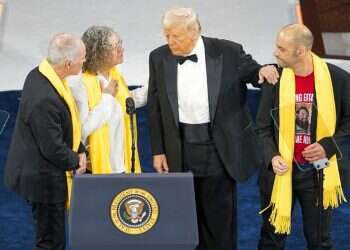Hezbollah has lost every one of Lebanon's parliamentary elections over the past 15 years. In the general elections being held Sunday, however, an emerging trend seems to indicate the militant group and its supporters are on a path to win a majority of parliament. In such an event, Hezbollah's historic victory could set off significant internal changes in Lebanon.
The apparent trend is a result of four factors: The cumulative weakness of Lebanese Prime Minister Saad Hariri's camp; the alliances that Hezbollah has managed to forge; a new elections law; and the fact that, for the first time in Lebanon's history, Lebanese citizens living abroad can exercise their right to vote.
After Hariri's coerced visit to Saudi Arabia late last year, and the Saudi demand that Lebanon take a more aggressive stand against Hezbollah, Hariri tried to pressure Hezbollah to keep out of regional conflagrations. In practice, however, Hariri largely avoided any real confrontation, perhaps in an effort to maintain internal Lebanese calm.
Hezbollah took advantage of Hariri's reticence and forged important political alliances. In the run-up to the election, the group skillfully used these alliances and Hariri's weakness to portray itself as a defender of Lebanon rather than merely seeking power.
The alliances Hezbollah formed are with Amal, the secular Shiite party led by Parliament Speaker Nabih Berri; with the Marada movement, founded by late Maronite warlord Suleiman Frangieh; and with Lebanese President Michel Aoun, who has Hezbollah to thank for his seat in the presidential palace.
The new election process in Lebanon, which did away with the previous ethnicity-based system, relies on relative representation that also includes a reduced number of voting districts. This gives Hezbollah a new advantage, as it can now contend in other districts in addition to its own.
Hezbollah may benefit from the new system, where voters select "preferred candidates" in a given district in addition to voting for a party. Together with the participation of expat Lebanese nationals, which will provide Hezbollah support from around the world, Hezbollah may very well be on a path to victory.
If Hezbollah and its allies win a total of 128 parliament seats, it will cement the organization's political dominance in Lebanon in addition to its military dominance.
So what will Hezbollah do with such a historic victory? It is safe to assume that, at least at first, it will adopt a "business as usual" facade, in an effort to avoid unnecessary tensions. Moreover, Hezbollah's patron – Iran – is currently busy entrenching its hegemony in the region and must not be disturbed.
Another possibility is that Hezbollah will use its parliamentary majority to legitimize what it terms "resistance against Israel," making it a legal endeavor.
Lastly, Hezbollah may comply with Parliament Speaker Berri's request to amend the 1989 Taif Agreement – which ended the Lebanese civil war. The changes would base the ethnic division in the country on three religious groups – Christian, Sunni and Shiite – instead of the current division along only the Christian-Muslim divide.
Hezbollah will likely encounter some Western resistance that will threaten to undercut its plans, mainly through financial pressure on aid to Lebanon. In any case, if it succeeds in conquering the parliament in the coming election, it will transform from being an influencing factor to a deciding factor. This does not bode well for the region.



